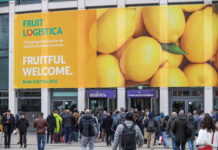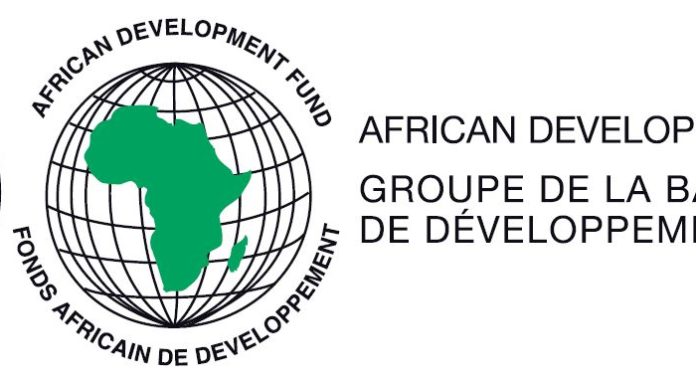By Amos Wachira
Like Wangari Mathai, Kenya’s passionate environmentalist, Joyce Gachugi Waweru lives and talks environmental sustainability.
From an early age, she knew she wanted to make a difference.
While growing up, her life was centered around helping people. Fittingly, she chose a career in environmental science.
“I felt that environmental sciences were all-encompassing; helping people and the environment.”
As a sustainability practitioner, she has worked in the environmental conservation space for 12 years, juggling demanding dockets like climate change, renewable energy, sustainability, waste management and packaging.
Environmental sustainability has many facets and plastic waste management is one of these. It’s a recurring problem that’s troubling governments and cities across the globe.
If statistics are anything to go by, plastic waste could be a global menace in coming decades.
According to a Guardian report, around 8.3 billion tons of plastic have been produced since the 1950s. Of these, only 9% has been recycled.
The same report shows that over 480 billion plastic drinking bottles were bought in 2016 across the globe, up from 300 billion bottles a decade ago.
Unfortunately, less than half the bottles bought in 2016 were recycled, with just 7% of those collected turned into new bottles. The rest ended up in landfills and oceans.
Although the government of Kenya moved with speed to ban plastic bags in 2017, there are loads of plastic waste lying around. Joyce believes that all these bottles could be recycled, cleaning the environment and creating many jobs for Kenyans.
As the country manager of PETCO KENYA, the first producer responsibility organization in Kenya representing manufacturers, brand owners, bottlers retailers and converters of PET Resin, she has big plans for the industry.
“We have a triple bottom line approach. We are pursuing a win-win situation for the environment, business and for the people,” she says.
Petco Kenya is a member based organization that was founded in 2017 to spearhead recycling of plastics. It’s members include manufacturers of PET plastics, collectors and recyclers.
The organization mirrors the ideals of Petco South Africa, a widely successful recycling lobby.
PET(Polyethylene terephthalate) is a polymer of plastic that makes plastic bottles for packaging a variety of products, including soda, soft drinks, water, liquid detergents, among others.
To make any significant progress in the industry, she says the government needs to declassify plastic bottles. At the moment, used plastic bottles are considered a waste, and not a resource. Yet, they can be turned into a variety of useful materials. For instance, PET bottles can be recycled into fibre.
In Europe and Americas, recycled PET has many uses, including as geotextile materials. Interestingly, some countries are making better use of PET plastic waste; by building roads.
Locally, recycled PET could boost the manufacturing sector as it’s an ideal source of raw materials for end use manufacturers Who make disposable cutlery and other utensils. Other than this, most EPZ manufacturers import fiber materials that could be sourced locally through recycling of PET plastics.
“Recycling fits well in the country’s big 4 agenda. The industry can create hundreds of thousands of jobs for our people.”
Petco Kenya identified recyclers and adds some resources to enable them to collect more bottles. The University of Nairobi graduate reckons that if the company continues to incentivize the recycling value chain, they will get more collectors and the industry will grow.
A passionate sustainability practitioner, she envisages that the organization will push recycling rates to 70% by 2030, up from the current 5%.
The goal might seem lofty, but she says it can be done in Africa.
It has been done before. “In South Africa, we found out that their recycling industry is well structured. They have a bigger economy, well-developed recycling infrastructure, policy and legislation. Kenya is slightly behind South Africa as far as recycling goes,” she says.
Joyce adds that they banked on top lessons from their South African counterparts to set up the local chapter.
One of the takeaways, she says, was to incentivize the recycling value chain.
With a solution at hand, the company kicked off a campaign aimed at putting value on the plastic bottles to enable more collectors and recyclers to do more.
However, spearheading recycling in an industry that was fragmented was not going to be a smooth sail for Petco Kenya. Joyce and her team soon realized the industry was largely informal and lacked structures. Besides, no technical data existed on the number and capacity of recyclers, collectors and PET manufacturers.
“Without data, it was hard to create a strategy,” she says.
The company then commissioned a baseline study that could help it create guidelines and strategy. The preliminary results for the study were released in March this year, giving the company a basis for launching its ambitious recycling plans.
Their efforts are paying off. At inception, Petco Kenya membership stood at seven. It has now doubled to 14 , barely two years later.
The company has also made recycling attractive across the entire value chain, with more recyclers and collectors joining in.
Given the benefits that recycling brings, it’s not a surprise that this industry is growing tremendously.
Joyce says the global plastic recycling industry is poised to grow significantly in coming years.
“Plastics come from petroleum. For us to make new bottles, we use more fossil fuels, increasing the carbon foorprint. There’s a paradigm shift. The world is moving towards recycling. Locally, consumers are calling for recyclable packaging.”
Despite Petco’s bullish outlook, Kenya’s plastic recycling industry has its fair share of challenges.
For instance, some plastic products that are in use locally are hard to recycle.
According to Joyce, coloured plastic bottles are the hardest to recycle.
“The darker the color, the harder it is to recycle them,” she says.
Her organization is advocating for development of PET plastics that can be easily recycled. For a start, they are asking water bottlers to consider using clear bottles.
For such a significant paradigm shift, Petco needs to work closely with over 900 water bottlers spread across the country. The company intends to embark on a recruitment drive to enroll more members.
There’s no denying that Petco has laid the ground work and built the momentum in the plastic recycling industry. It’s now setting its sights on the next phase of growth.
“In future, we want to promote plastic collection in residential areas. This is a quick win, although it will need lots of consumer awareness,” she says.
The company also plans to partner with high-capacity recyclers. Unfortunately, Kenya doesn’t have high-capacity recyclers. “In Kenya, we only have small and medium recyclers. These need to be incentivized to scale.”
Joyce says there’s also a need to create an industry position for plastic management. On this front, there’s progress as Kenya Association of Manufacturers has developed a committee on plastic waste management.
Joyce is keen to make the country cleaner and greener, while creating a conducive environment for businesses to thrive.
She wants to steer Petco to great heights, driving its triple bottom line agenda of conserving the environment, helping businesses and creating jobs for the people.
From an early age, she knew she wanted to make a difference.
While growing up, her life was centered around helping people. Fittingly, she chose a career in environmental science.
“I felt that environmental sciences were all-encompassing; helping people and the environment.”
As a sustainability practitioner, she has worked in the environmental conservation space for 12 years, juggling demanding dockets like climate change, renewable energy, sustainability, waste management and packaging.
Environmental sustainability has many facets and plastic waste management is one of these. It’s a recurring problem that’s troubling governments and cities across the globe.
If statistics are anything to go by, plastic waste could be a global menace in coming decades.
According to a Guardian report, around 8.3 billion tons of plastic have been produced since the 1950s. Of these, only 9% has been recycled.
The same report shows that over 480 billion plastic drinking bottles were bought in 2016 across the globe, up from 300 billion bottles a decade ago.
Unfortunately, less than half the bottles bought in 2016 were recycled, with just 7% of those collected turned into new bottles. The rest ended up in landfills and oceans.
Although the government of Kenya moved with speed to ban plastic bags in 2017, there are loads of plastic waste lying around. Joyce believes that all these bottles could be recycled, cleaning the environment and creating many jobs for Kenyans.
As the country manager of PETCO KENYA, the first producer responsibility organization in Kenya representing manufacturers, brand owners, bottlers retailers and converters of PET Resin, she has big plans for the industry.
“We have a triple bottom line approach. We are pursuing a win-win situation for the environment, business and for the people,” she says.
Petco Kenya is a member based organization that was founded in 2017 to spearhead recycling of plastics. It’s members include manufacturers of PET plastics, collectors and recyclers.
The organization mirrors the ideals of Petco South Africa, a widely successful recycling lobby.
PET(Polyethylene terephthalate) is a polymer of plastic that makes plastic bottles for packaging a variety of products, including soda, soft drinks, water, liquid detergents, among others.
To make any significant progress in the industry, she says the government needs to declassify plastic bottles. At the moment, used plastic bottles are considered a waste, and not a resource. Yet, they can be turned into a variety of useful materials. For instance, PET bottles can be recycled into fibre.
In Europe and Americas, recycled PET has many uses, including as geotextile materials. Interestingly, some countries are making better use of PET plastic waste; by building roads.
Locally, recycled PET could boost the manufacturing sector as it’s an ideal source of raw materials for end use manufacturers Who make disposable cutlery and other utensils. Other than this, most EPZ manufacturers import fiber materials that could be sourced locally through recycling of PET plastics.
“Recycling fits well in the country’s big 4 agenda. The industry can create hundreds of thousands of jobs for our people.”
Petco Kenya identified recyclers and adds some resources to enable them to collect more bottles. The University of Nairobi graduate reckons that if the company continues to incentivize the recycling value chain, they will get more collectors and the industry will grow.
A passionate sustainability practitioner, she envisages that the organization will push recycling rates to 70% by 2030, up from the current 5%.
The goal might seem lofty, but she says it can be done in Africa.
It has been done before. “In South Africa, we found out that their recycling industry is well structured. They have a bigger economy, well-developed recycling infrastructure, policy and legislation. Kenya is slightly behind South Africa as far as recycling goes,” she says.
Joyce adds that they banked on top lessons from their South African counterparts to set up the local chapter.
One of the takeaways, she says, was to incentivize the recycling value chain.
With a solution at hand, the company kicked off a campaign aimed at putting value on the plastic bottles to enable more collectors and recyclers to do more.
However, spearheading recycling in an industry that was fragmented was not going to be a smooth sail for Petco Kenya. Joyce and her team soon realized the industry was largely informal and lacked structures. Besides, no technical data existed on the number and capacity of recyclers, collectors and PET manufacturers.
“Without data, it was hard to create a strategy,” she says.
The company then commissioned a baseline study that could help it create guidelines and strategy. The preliminary results for the study were released in March this year, giving the company a basis for launching its ambitious recycling plans.
Their efforts are paying off. At inception, Petco Kenya membership stood at seven. It has now doubled to 14 , barely two years later.
The company has also made recycling attractive across the entire value chain, with more recyclers and collectors joining in.
Given the benefits that recycling brings, it’s not a surprise that this industry is growing tremendously.
Joyce says the global plastic recycling industry is poised to grow significantly in coming years.
“Plastics come from petroleum. For us to make new bottles, we use more fossil fuels, increasing the carbon foorprint. There’s a paradigm shift. The world is moving towards recycling. Locally, consumers are calling for recyclable packaging.”
Despite Petco’s bullish outlook, Kenya’s plastic recycling industry has its fair share of challenges.
For instance, some plastic products that are in use locally are hard to recycle.
According to Joyce, coloured plastic bottles are the hardest to recycle.
“The darker the color, the harder it is to recycle them,” she says.
Her organization is advocating for development of PET plastics that can be easily recycled. For a start, they are asking water bottlers to consider using clear bottles.
For such a significant paradigm shift, Petco needs to work closely with over 900 water bottlers spread across the country. The company intends to embark on a recruitment drive to enroll more members.
There’s no denying that Petco has laid the ground work and built the momentum in the plastic recycling industry. It’s now setting its sights on the next phase of growth.
“In future, we want to promote plastic collection in residential areas. This is a quick win, although it will need lots of consumer awareness,” she says.
The company also plans to partner with high-capacity recyclers. Unfortunately, Kenya doesn’t have high-capacity recyclers. “In Kenya, we only have small and medium recyclers. These need to be incentivized to scale.”
Joyce says there’s also a need to create an industry position for plastic management. On this front, there’s progress as Kenya Association of Manufacturers has developed a committee on plastic waste management.
Joyce is keen to make the country cleaner and greener, while creating a conducive environment for businesses to thrive.
She wants to steer Petco to great heights, driving its triple bottom line agenda of conserving the environment, helping businesses and creating jobs for the people.













